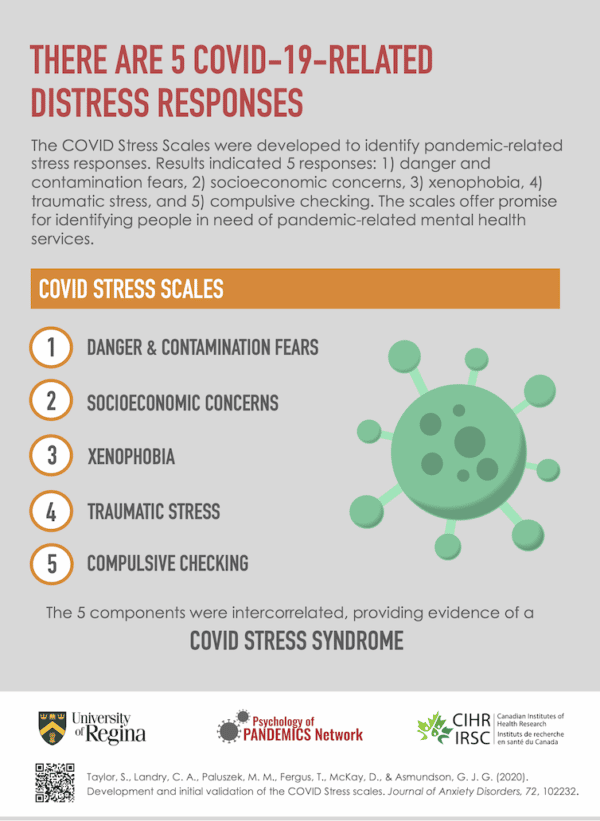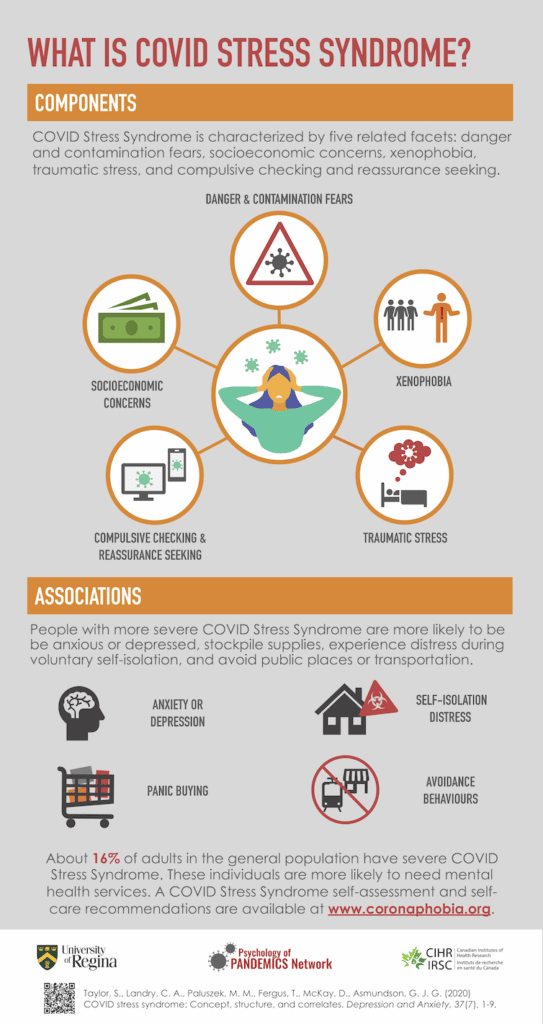Quote: ‘Staggering impact on physical well-being and mortality during COVID taking unprecedented toll on mental health’
The staggering impact on physical well-being and mortality during the COVID-19 pandemic is also taking an unprecedented toll on our mental health.
Numerous recent studies have shown global increases in the prevalence and severity of depression and anxiety as well as increases in post-traumatic stress disorder and substance abuse.
These increases likely stem from the changes to daily life we have all been asked to make in attempts to mitigate viral spread.
Yet conventional mental health approaches and diagnoses do not fully capture the nuanced mental health impacts of this pandemic.
These approaches may not be sufficient to guide the development of strategies to address the pandemic’s rapidly increasing mental health burden.
As clinical psychologists with expertise in fear and anxiety-related conditions as well as assessment and treatment development, studies are ongoing in trying to fully understand the specific mental health effects of this pandemic in order to inform the development of effective public health messaging and evidence-based interventions.
“Supported by funding from the Canadian Institutes of Health Research and the University of Regina, we conducted a longitudinal population-based survey of a large sample of Canadian and American respondents, with surveys administered in late March, mid-May and early July of 2020.
“Based on this data we determined that the mental health impact of COVID-19 is best understood as a multi-faceted syndrome comprising a network of interconnected symptoms,” said a spokesperson.
COVID Stress Scales
Using data from approximately 7,000 respondents collected in late March, development data of COVID Stress Scales were made.
These scales assess five core features of COVID-19-related stress: fear of danger and contamination, fear of adverse socio-economic consequences, checking and reassurance seeking, xenophobia (discrimination against foreigners) and traumatic stress symptoms – for example, pandemic-related nightmares.




















